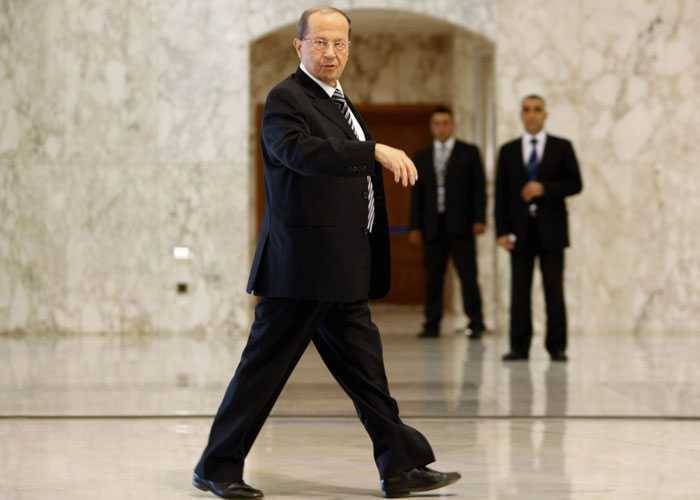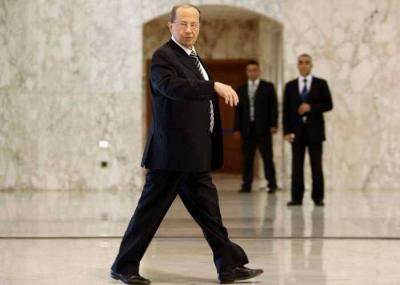Preparations are underway to bid farewell to President Michel Aoun next Sunday, in a race against the heavy anticipation of what the final rounds of political escalation during Aoun's last week in office may lead to. Observers note the strange paradox that the main feature of the week preceding the end of Aoun’s presidency is marked by the country being dragged into a labyrinth of artificial escalation, which will only result in further tension and unrest.
The overarching theme of the upcoming week will be the departure of a term that has seen Lebanon endure some of its worst times, even worse than the periods of war itself. The corresponding aspect of this theme will be the new presidential vacuum that seems impossible to avoid, except by an overwhelming surprise for which there are no real indicators one week before the end of Aoun’s term.
Consequently, the information that has circulated regarding the date for the exchange of documents pertaining to the maritime boundary demarcation between Lebanon and Israel—according to the agreement brokered by the United States—has taken on the nature of a breakthrough once again. This event will also occur in Aoun’s last week, adding intensity and focus to successive pivotal moments.
However, according to information obtained by "An-Nahar" last night, the date for the ceremony that is to be held in Naqoura to exchange the documents has not yet been confirmed, following the postponement of the arrival of U.S. mediator Amos Hochstein in Lebanon from next Tuesday to Wednesday, due to further corrections being made to the texts of the document that Hochstein will deliver to Lebanese and Israeli officials. Based on this document, the U.S. and UN delegations will receive the approval documents from Lebanon and Israel regarding the demarcation agreement.
In this context, the outgoing presidency seeks to secure a final populist point in its last week. Its leader contacted Bashar al-Assad, requesting an initiation of talks regarding the maritime border demarcation between Lebanon and Syria, starting with a visit from a Lebanese delegation to Damascus.
Along a similar line, the Cypriot government sent a letter through its embassy in Beirut to the Lebanese Foreign Ministry, welcoming the agreement between Lebanon and Israel on the maritime boundary demarcation, expressing its desire to consult with Lebanon to address the impact of the demarcation agreement with Israel on the maritime borders between Cyprus and Lebanon. The government requested arrangements for a meeting for a Cypriot delegation visiting Beirut with Deputy Speaker Elias Bou Saab, Foreign Minister Abdullah Bou Habib, and Energy Minister Walid Fayad for this purpose.
As for the governmental situation, positive developments seem entirely unlikely, and the coming week may witness widespread escalation from the presidency and its team against caretaker Prime Minister Najib Mikati, which could extend beyond constitutional boundaries. According to leaks that the presidency and the "Free Patriotic Movement" have been exaggerating recently, reports stated that the President could address the Lebanese people on television in the coming days, announcing a series of measures to limit the powers of the caretaker government. He plans to sign a decree of resignation for the government, asserting that a caretaker government has no right to exercise the powers of the President.
Simultaneously, the head of the "Free Patriotic Movement," MP Gebran Bassil, is expected to instruct his ministers and ministers from Aoun’s government to cease their functions in their ministries, creating a scenario that would put Prime Minister Najib Mikati in a difficult position. However, Mikati does not seem prepared to back down from Bassil's conditions for forming a new government, insisting that his cabinet is constitutionally fortified and capable of managing the country during the presidential void. He is also preparing to participate in the Arab summit in Algeria following October 31.
According to these reports, Hezbollah and the General Security Director General, Major General Abbas Ibrahim, will continue their government mediations with Mirna Chalouhi and with the Saraya. However, the chances of their success or failure before the end of Aoun's term appear equal, with a slight inclination towards failure.




